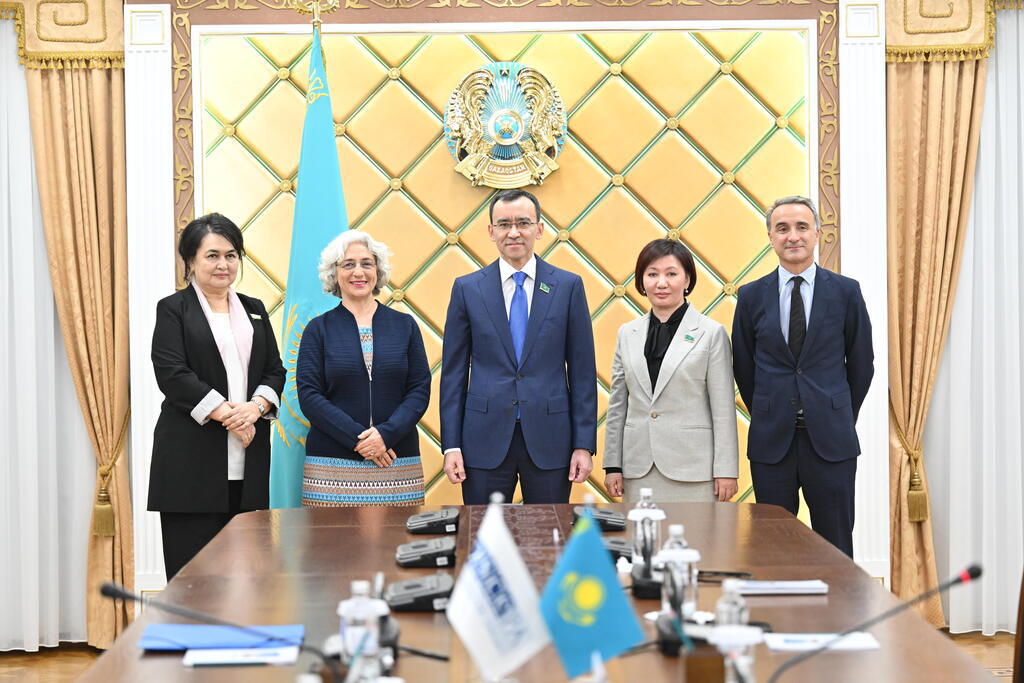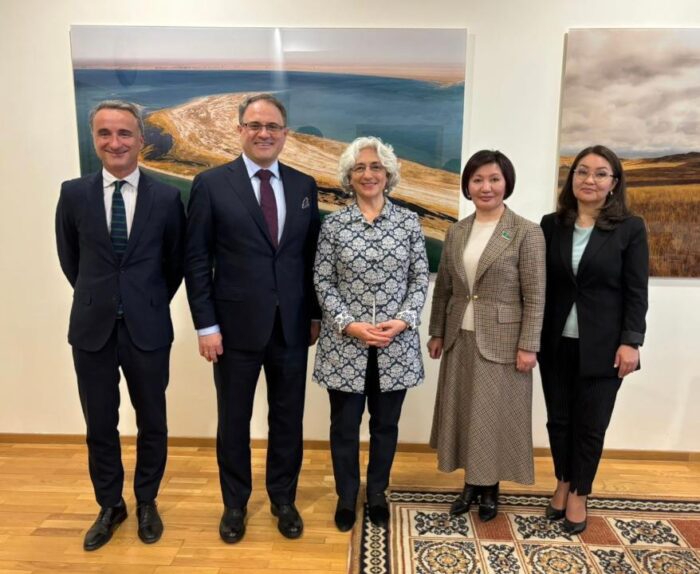ASTANA — The Delegation of the Organization for Security and Co-operation in Europe (OSCE) Parliamentary Assembly (PA), headed by the Special Representative on Central Asia Farah Karimi, arrived in Astana to discuss cooperation prospects, climate change and ecology with Kazakh officials and a number of international organizations.

Maulen Ashimbayev and OSCE PA delegation. Photo credit: Senate
During an April 9 meeting with the Chairman of the Senate, the upper house of the Kazakh Parliament, Maulen Ashimbayev, the parties spoke about the prospects for strengthening partnership, including within the framework of international organizations, reported the Senate’s press service.
Ashimbayev stressed that Kazakhstan considers the OSCE an effective multilateral platform for decision-making on fundamental topics of security and cooperation. He also drew attention to the fact that relations between the Central Asian states are steadily developing today in the spirit of strategic partnership and alliance.

Roman Vassilenko and OSCE PA delegation. Photo credit: Foreign Ministry
The meeting participants also discussed the state of ecology, climate change, transboundary rivers, problems in irrigation, rational use of water resources and other industries in Central Asian countries. Notably, particular focus was placed on joint projects to restore the Aral Sea’s ecosystem and the Senate’s work in this direction.
Representatives of the OSCE PA, for their part, noted the importance of the transformations in Kazakhstan’s political and socio-economic life, highly appreciating their results, and also expressed hope for strengthening inter-parliamentary cooperation.
During the meeting with Kazakh Deputy Foreign Minister Roman Vassilenko, the parties focused on the fight against climate change, the use of transboundary water resources, the development of clean energy and the promotion of women’s and youth’s roles in the political life of the nation, according to the ministry’s press service.
Vassilenko mentioned Kazakhstan and France’s plans to hold the One Water Summit on the sidelines of the United Nations (UN) General Assembly in New York this autumn and the regional climate summit under UN auspices in Kazakhstan in 2026. He also spoke about measures the Kazakh government took to address water issues in the region, including being chair of the International Fund for Saving the Aral Sea (IFAS) in 2024-2026 and the joint efforts of the Central Asian countries in this area.
In turn, Karimi noted the proactive position of Kazakhstan in the development of cooperation with its neighbors and, in the context of the preparation for the sixth Consultative Meeting of the Heads of Central Asian States in Astana this year, stressed the importance of this process for the development of constructive cooperation at the regional level. She also expressed hope for a deeper involvement of parliamentarians in protecting women’s rights in society.
